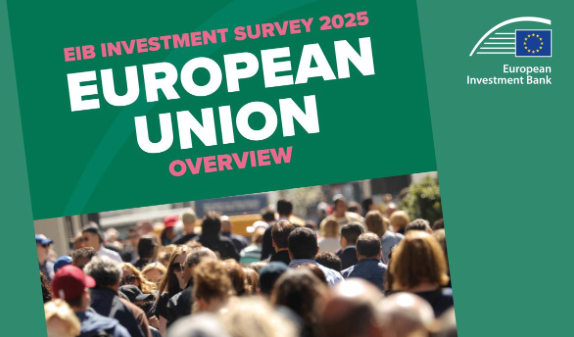Avoiding Investor Time Wasters: Efficient Fundraising
- benjamin2564
- Aug 26, 2025
- 4 min read
For founders, time is a precious commodity, especially during the demanding process of fundraising. Learning to identify and avoid investor "time wasters" is a critical skill that can dramatically streamline your fundraising efforts and increase your chances of securing the right capital.
1. Master Your Pre-Fundraising Preparation
The most effective way to avoid time-wasting is through meticulous preparation before you even begin outreach.
Know Your Numbers Cold: Investors expect founders to have an absolute mastery of their financials, including key metrics, historical data, and well-substantiated projections [Cooley Go, Early Light Ventures]. Being fuzzy on numbers or having inconsistent data is a major red flag and leads to wasted time.
Craft a Compelling Story and Pitch Deck: Your pitch deck should be clear, concise, and compelling, telling your company's story, highlighting your unique value proposition, and demonstrating market opportunity and traction [Cooley Go, StartupNation]. A poorly structured or confusing deck can lead to endless clarifying questions and disengagement.
Build a Highly Targeted Investor List: Research investors thoroughly to identify those whose investment thesis perfectly aligns with your company's stage, industry, geography, and typical check size [TechCrunch, NFX, Forbes]. A targeted list saves countless hours.
Prioritize Warm Introductions: Warm introductions from trusted sources (existing investors, advisors, mentors, other founders) are significantly more effective than cold emails [TechCrunch, Cooley Go, Slicing Pie]. They signal credibility and often mean the investor has already conducted a preliminary filter, reducing the likelihood of a wasted meeting.
Align Your Team: Ensure everyone involved in the fundraising process (co-founders, key executives) is on the same page regarding the pitch, strategy, and roles. Discrepancies can raise investor concerns and prolong the process.
2. Qualify Investors Actively During the Process
Once you're in conversations, it's your job to qualify the investor as much as they are qualifying you.
Ask Probing Questions: Ask investors direct questions about their investment thesis, recent investments in your space (or lack thereof), their typical due diligence process and timeline, and how they specifically add value beyond just capital [PitchBook, Early Light Ventures]. This helps gauge their genuine interest and fit.
Look for Genuine Engagement Cues: Pay attention to their responsiveness. Are they quick to follow up? Do they remember details from previous conversations? Do they ask thoughtful, specific questions that demonstrate they've done their homework? Lack of prompt, specific engagement can be a sign of low interest [PitchBook].
Conduct Reference Checks: If a conversation seems promising, discreetly talk to other founders in their portfolio. Ask about the investor's involvement, responsiveness, and actual value-add post-investment. This provides invaluable insight into what working with them would truly be like [NFX].
Evaluate Value-Add Beyond Capital: A truly valuable investor brings more than money. Do they seem to understand your business deeply? Can they offer strategic advice, open doors, or provide mentorship? If their interest seems purely transactional, they might not be the best long-term partner, even if they're not a "time waster" in the traditional sense.
Set Clear Expectations and Timelines: Be transparent about your fundraising timeline and the process you intend to run. A clear, well-managed process can help create a sense of urgency and encourage decisive action from investors [Cooley Go].
3. Recognize and Address Red Flags
Certain behaviors or statements from investors can be significant “red flags” indicating they might not be serious or a good fit, saving you from further wasted effort.
Vague Questions or Lack of Specificity: An investor who asks only generic questions or struggles to articulate clear next steps might be "tire kicking" rather than genuinely evaluating an investment [PitchBook].
"We're Just Learning the Space": While some educational meetings are natural, if an investor consistently uses this phrase and doesn't progress to more specific discussions, they are likely exploring broadly rather than actively seeking an investment [TechCrunch].
Extensive Due Diligence Demands Too Early: Demanding a full data room or an overwhelming amount of detailed information after a very early-stage meeting (e.g., first or second call) without showing significant commitment is a sign they might be using you for market research rather than genuine interest [PitchBook, SVB].
Slow Responses or "Ghosting": A consistent lack of responsiveness or suddenly going silent are clear indications that interest is low. Don't chase indefinitely [TechCrunch].
Investor “FOMO” Without Commitment: Some investors may express great enthusiasm or fear of missing out (FOMO) but never translate that into concrete action, term sheets, or definitive next steps. Look for actions, not just words [NFX].
Focus on Only Warm Intros: While warm intros are great, an investor who only wants to talk after an introduction and shows no willingness to do initial research themselves might be too passive to be truly engaged.
Conclusion
Navigating the fundraising landscape is challenging, but by prioritizing meticulous preparation, actively qualifying potential investors, and recognizing red flags, founders can significantly reduce wasted time. The goal is not just to raise capital, but to raise the right capital from the right partners who are genuinely committed to your success. Focus on building meaningful relationships with investors who understand your vision and are ready to act, allowing you to get back to what you do best: building your business.

Sources:
How to Get Funded: Your Roadmap to Raising Capital - Cooley Go
How to avoid wasting investors’ time: 6 tactics for fundraising founders - PitchBook
5 Warning Signs That an Investor Is Wasting Your Time - Entrepreneur.com
Early Stage VC Funding: Avoiding Waste in Both Directions - Early Light Ventures
How to Avoid Wasteful Startup Fundraising - Silicon Valley Bank (SVB) via archive.org




Comments